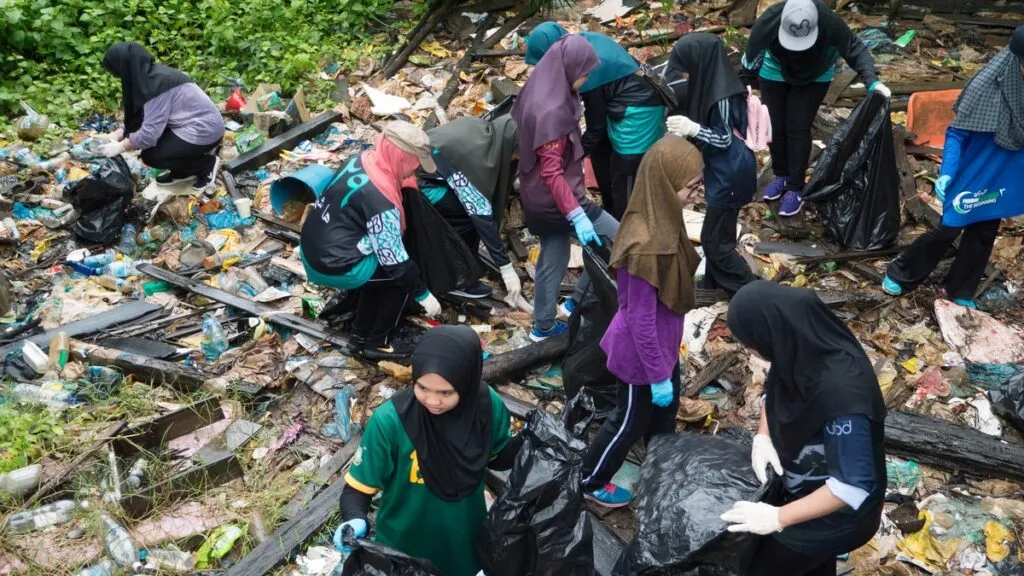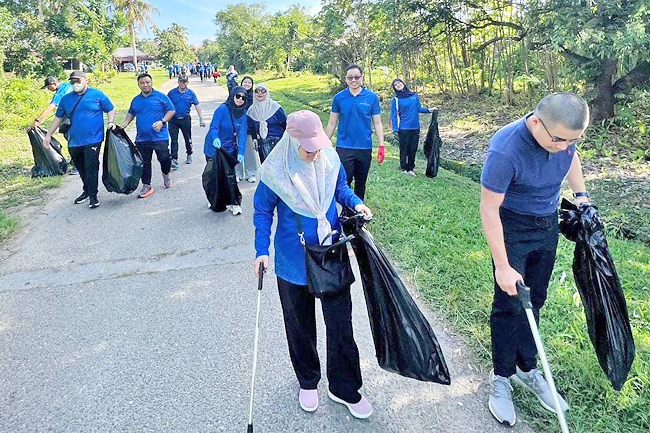
Brunei volunteer campaign cleans up 353.5 Kg of Garbage
Belait District, Brunei Darussalam – A garbage pile amounting to up to 353.5 Kg was cleaned by volunteers as a result of Brunei Darussalam ’s cleaning campaign.
Brunei’s Ministry of Environment and Ministry of Finance and Economy (MoFE) in the country led the clean-up drive in the Belait District. Hajah Latifah binti Haji Mahmud, the Acting Permanent Secretary (Fiscal II) at the MoFE, took the lead.
With the campaign aiming to cover the most critical areas, the initiative was held around the government barracks along Jalan Panglima and the vicinity of Tudung Saji and Pekan Belait.
Along with these, the Ministry of Culture, Youth and Sports honors the International Volunteer Day, which is celebrated annually on the 5th of December.
As part of the broader Day of Action campaign which has happened every December 5th in Brunei since 2018, this initiative aims to collect improperly disposed garbage, which can result in ecological complications such as garbage reaching bodies of water, and afflicting the lifestyle of normal fauna.
Involvement of locals emphasizes the value of community building and involvement
More than a campaign: Environmental Impact of a Clean-Up
While Brunei have a limited major ecological pollution problem relative to other countries, its urbanization, increase in population, and overall economic development are expected to result in some environmental complications, such as air pollution.
A garbage clean-up removes wastes that other people may opt to burn instead of dispose of, thus contributing to air pollution, as well as keeping them away from bodies of water. This also controls non-biodegradable wastes existing in nature, carefully removing them from the environment and figuring out how to properly dispose of them.
This opens the opportunities for recycling as well.

Beyond environmental impact: Educational value of garbage clean-up
With a bulk of the volunteers coming from the youth sector, the clean-up campaign offers opportunities for education as well. The importance of maintaining sanitary shared spaces for the public is amongst the most important topics tackled by such efforts, which leads to strengthening the foundations of environmental stewardship.
These efforts also teach its volunteers and other stakeholders the consequences of disregarding proper waste disposal. These improve individual practices of waste management, whether at work or at home.
Lastly, techniques for proper waste management, such as recycling, reducing, and reusing are taught to the volunteers as well. With the increasing amount of garbage, the landfills may fill in leaving no space for future wastes.

About the Author
Ron Culvera is the Director of the ASEAN Youth Organization Post (AYOPost). His passion for writing is rooted in his role in their campus journal from the early age of 9 until he graduated high school. Ever since then, he hasn’t stopped writing – he worked as an out-of-school freelance writer, continued on part-time to help him get through his college and post-graduate degree, and worked as an editor and reviewer in several international publications. From here on, he founded his start-up in science communications and digital journalism. When not writing, he plays chess, reads non-fiction, or watches documentaries.